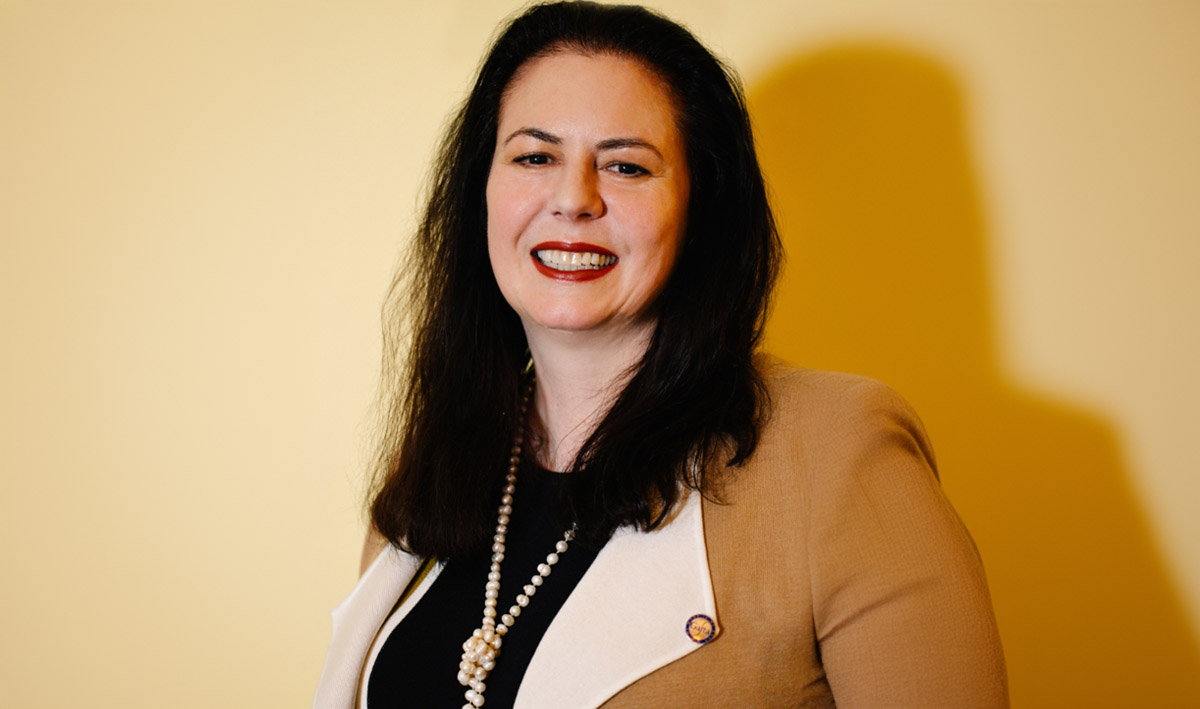July 24, 2024
Lara Gilmour talks to the Director General of the Grain and Feed Trade Association (Gafta) about the importance of using contracts, CODEX’s 60th anniversary and how to stay out of arbitration.



Jaine Chisholm Caunt OBE, Director General of the Grain and Feed Trade Association (Gafta)
There’s always been a close working relationship between the two, since when GPC was known as CICILS. When I first joined Gafta, Hakan Bahçeci was the Chair of the International Agri-Food Network, for example, and we’ve had a number of members of GPC who have sat on the Gafta council, including the current president of GPC, Vijay Iyengar. We were also involved together with the International Year of Pulses, which obviously was very much championed by GPC; Gafta was supportive and did lots of activities, including developing a pulses recipe book.
Yes, it’s a hobby of mine. I develop them by trial and error. I've been a vegetarian for nearly 40 years, so I have always naturally been a great advocate of pulses and other Gafta products, such as grains and spices.
We have a joint voice on a number of important topics, specifically on things like the importance of Codex work, challenging tariff and non-tariff barriers to trade and generally trying to keep international trade flowing. Gafta helped and worked with GPC on the development of the GPC Pulses Contract #1 and we also provide arbitration services for all disputes arising out of that contract.
One of the key things to do is your due diligence before entering into a contract. Ask yourself: do you know who your counterparty is? Have you got their correct name? Do you know what country they’re domiciled in? If everything goes wrong, is it a country where you might be able to enforce an arbitration award under the New York convention? Are they a member of Gafta or GPC, for example? We run a defaulters list and can take action against any members who don’t comply with an award of arbitration. We increasingly find mistakes are made when people are making trades very quickly via instant messaging apps such as WhatsApp or text. There’s a great deal of opportunity for error or ambiguity, particularly with the use of emojis as a response to messages; we’ve seen those kinds of things arise in Gafta arbitration disputes.
Prevention is the best cure and we have discussed the idea of running some bespoke training for GPC members. We run an online course called ‘Know Your Gafta Contracts’ and we are discussing potentially adapting it to ‘Know Your GPC contracts’. This would provide training on what to look out for and identify some of the most common errors.
I certainly hope so. We attract lots of young people to Gafta courses, such as through our trade foundation course. However, participation does rely on these young people having the support of their employers and an understanding of the importance of training. I hope it’s something we can arrange as the more that can be done to educate people about mistakes to avoid, the less likely it is that they will end up in arbitration.
The formation of this committee a year ago was a very positive initiative. We want to work together for the mutual benefit of our members for open, free and fair trade that is as predictable as possible. That involves liaising with the United Nations, the World Trade Organization, Codex and FAO, all of whom are intimately involved in ensuring market access remains accessible. There continues to be a number of phytosanitary issues relating to pulses but also issues relating to other tariff and non-tariff barriers to trade and this committee provides both a forum and a voice for the pulses sector. The committee’s work is also to be the voice of the pulses sector and remind people of the importance of the pulses industry in feeding the world. World Pulses Day, which followed on from the International Year of Pulses is an important opportunity to highlight the key role pulses play in enabling secure nutrition for the world.
Broadly speaking, at the moment there is a considerable amount of geopolitical instability in the world and there are a number of significant elections taking place this year that will have an impact on policy. In Europe, we have a big drive towards certain types of policy that are focused on sustainability and traceability, such as the EU deforestation regulations. While the underlying motivations are welcomed, there are questions about how the policies will work in practice and the ability of individual companies and growers to be able to comply with them. The ever-changing climate patterns also have a significant impact on the agri-food trade.
Alongside GPC, we work with the International Agri-Food Network that coordinates the Private Sector Mechanism at the UN Committee on World Food Security. It’s a great forum to meet with policy makers from the UN and individual nations to talk about some of the issues facing farmers and traders, which in turn impact global food security, and thus enabling these UN bodies to understand the implications of some of the policy directions.
It was designed in response to members of the pulses community requesting the development of their own contract. As with all contracts, it will need to be refined and updated to reflect changing trade issues. This is where the training from Gafta on contracts could come into play to raise awareness and educate people on how to use it and how it can protect them.
As with all contracts, it can protect their rights. Being very clear about what it is you have and haven’t agreed to do. Our contracts are party neutral so they don’t advantage the buyer or the seller and they contain certain clauses relating to issues such as force majeure, which people don’t necessarily think about in advance but that can cause serious problems in the future. By using a contract of this type with a number of standard clauses, it anticipates what some of those issues may be and gives you tools and mechanisms for resolving disputes where there’s delays, for example.
If you are using a contract, which is already a great start, read it! It’s also important to remember that with contracts there are often some incorporated terms so, if you’re not sure what something means, speak to a lawyer or arbitrator first. Another point is that the GPC and Gafta contracts are standard templates; there’s nothing to stop you amending them and writing in your own clauses, particularly if you want to protect yourself against a specific concern. If you are concerned about market fluctuations; you can, for example, include a price review clause which would give you the opportunity to renegotiate the price if it goes above a certain percentage.
For international trade to succeed and flourish, you need international standards. For that, you need bodies that set and enforce those standards, whether it’s the World Trade Organization in terms of trade rules or Codex dealing with MRLs, contaminants, pesticides and ensuring food safety. Food safety is a real priority and for international trade to continue to succeed, we need to have predictability and common standards. As soon as individual countries deviate from these standards, it creates knock-on effects that are not necessarily anticipated by that country. Ultimately, we all need goods to flow, we need agricultural commodities to be raised at scale in the environment they are most suited to and to be shipped to where they are most needed. International trade feeds 1 in 6 people across the globe so keeping trade flowing and moving and enabling those crops to be raised and used is of vital importance.

Gafta / Jaine Chisholm Caunt / GPC Pulses Contract #1 / contracts / arbitration / disputes / FAO / WTO
Disclaimer: The opinions or views expressed in this publication are those of the authors or quoted persons. They do not purport to reflect the opinions or views of the Global Pulse Confederation or its members.